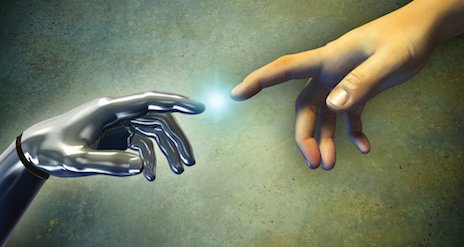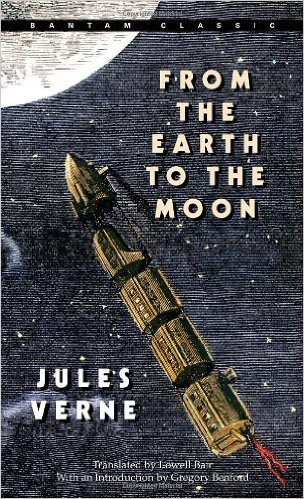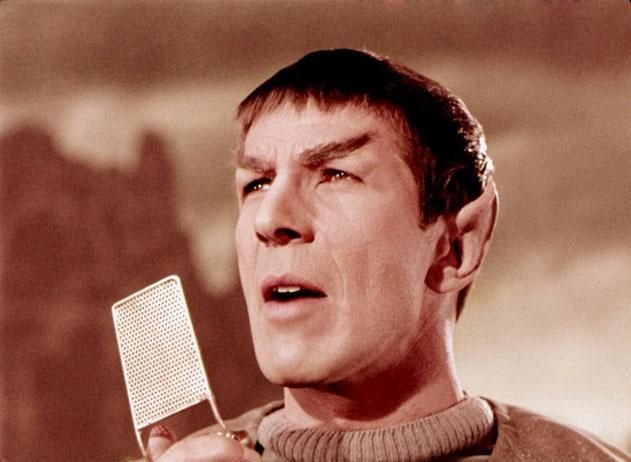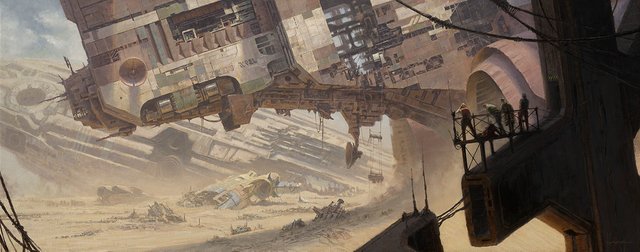From Pen to Paper, From Paper to Reality: How Science Fiction Inspires Real Change
Science fiction is something that is near and dear to my heart. Ever since I was young, science fiction (as well as fantasy) were the only genres I would read. Notions of the stars, spaceships, teleportation, superhumans, all sorts of apparent impossibilities played their way behind my eyelids. My dreams were filled with foreign galaxies and distant planets. I write this like it is in the past, but in reality that is still the case. New discoveries in the realm of astronomy send my heart beating faster, my brain racing at the prospect of the possibilities. Because that is what science-fiction does best: inspire humans to think farther and dream bigger.

Science fiction has changed throughout the decades from a genre scoffed at at the edges of the literary world to a well-respected literary form. In many ways, it attempts many of the same things as other forms of more conventional literature: social commentary, communication of the ironies of our time, a view on the human condition. But it takes those themes of literature, and takes them one step further. It inspires dreams to become a reality.
From Pen to Paper, From Paper to Reality
Nothing in this world can be created by the hand of man without it first being dreamt up. And that is the role that sci-fi plays: the dreaming. It has served as the catalyst to initiate enormous and world changing discoveries. There are countless examples of sci-fi writers dreaming of something, and then decades later it becoming a reality.
- Rocket Space Travel
In the 19th century, Jules Verne was known for dreaming up impossibilities that later inspired reality. He was one of the first to imagine travel moon, particularly impressive considering this was before the idea of flight had even become reality. In "From the Earth to the Moon", he accurately predicted many of the elements of the first lunar landing mission, from the idea a metal space capsule to the amount of force necessary to leave the Earth's atmosphere. (Source)

- Atomic Power
Leo Slizard, the physicist who first managed to create a nuclear chain reaction, was strongly influenced by the H.G. Wells novel The World Set Free. In this novel, Wells imagined what was possible with atomic power, and even coined the term "atomic bomb." (Source)

- The Cellphone
Martin Cooper, the inventor of the cellphone, has directly credited Star Trek as inspiring his first mobile phone design. “That was not fantasy to us,” Cooper said, “that was an objective.” (Source)

"Anything that one man can imagine, another man can make real."
There are a million other examples where the dreams of one man (or woman), written or shared in some way, became the reality of another. Sci-fi is not just wild conjecture. There is an entire sub-genre, known as "hard sci-fi", that is dedicated to scientific rigor. Many science fiction writers have strong technical backgrounds (think Isaac Asimov, Fred Hoyle, EE Smith). (Source)The ideas of these writers are the torch of hope, passed down from generation to generation. Hope and inspiration of what the world might be.
Igor Sikorsky, the inventor of the modern helicopter, often quoted Jules Verne, saying “Anything that one man can imagine, another man can make real.” (Source) And that is really what science fiction is. They are the dreams of men, shared so that they might become real.

Philip K. Dick has an old short-story about this very concept. I made a post about it a while back discussing the interesting ties that exist between sci-fi (especially classical) and our modern world. I've even come to commenting about "waterspider" instances when I read or hear about certain things in reference to the story by Dick.
What is the short story? Id be interested in reading it.
The story is titled "Waterspider". It was originally published for a Sci-Fi magazine in the '60s and was part of a collection released as one big book. I don't remember specifically which compilation book, though.
I fell in love with Philip K. Dick because of the naturalness to a lot of the science fiction he wrote. It was way out there, but it was still portrayed in such a way that it sounds entirely possible/believable.
Instead of writing out the whole thing here, I'd love to share one of my older posts, The Curious Case of Pre-Cogs, since it covers another of my favorite 100+ year-old stories that talks about the future of science fact being predicted in science fiction.
Cool article and thanks for the story recommendation. I have cursory knowledge of Philip K. Dick's work (most sci-fi ive read is from the past 20 years or so), but ill definitely do some deeper reading.
I agree that science fiction has been helpful in pushing the limits of the technological revolution. However, I feel that it is not always for the best. In some cases, the ideas put forth in science fiction novels have been stolen and expanded upon by those with the economic power to do so. This often results in an increase in economical, as well as political power, which can then be used to perpetuate the decimation of the middle class, leaving the 1% with an even larger share of the pie while the rest struggle to pay the bills. When governments expand upon ideas presented within sci-fi novels, it can also lead to new and improved ways to surveil the population, as well as more innovative methods of deceiving them and hiding the truth.
Thank you for the interesting read nonetheless.
Thats true. However, I think that no matter what you do, men will dream of new things, new places, new technologies. I think it would be undercutting exactly the kind of freedom you say governments frequently limit to try to limit the science fiction put out that give the elite class ideas on how to stay on top. I fully agree with the common saying that it is not the technology that is good or evil, but how it is used.
Oh, I wasn't suggesting that there should be any restrictions on the content in sci-fi novels. I'm not an advocate of censorship in any form. It is just a shame that people always seem to find something innocent and morph it into something sinister. I do think that technology can be evil in itself though. There are some inventions that were never intended for good. Torture devices for instance. And though this is probably a controversial opinion, to me, even weapons development can never truly be justified as a means of forging peace. Weapons are for hurting others, so we need to just stop making them all together. Sorry, I realise I drifted off topic somewhat. My apologies.
No worries, thats a totally valid point and I guess youre right. Intent upon creation is also important.
It is funny how it happened to Asimov laws. Fiction is used as a based of scientific research.
Not sure if you've ever come across The Blazing world writen by Margaret Cavendish. In the book you have metal ships and traveling to another world. Not that out there until you realise it was published in 1666, the same year as the great fire of London.
I havent come across it, but that sounds fascinating and ill definitely check it out.
It seems to me that NASA has on a couple of occasions recruited science fiction writers to help them imagine what comes next. I always wanted to be in that league but I would have to actually write more science fiction!
I was walking down the street today thinking and this exact subject was what I was thinking about. How weird! I am liking your stuff Victor. :)